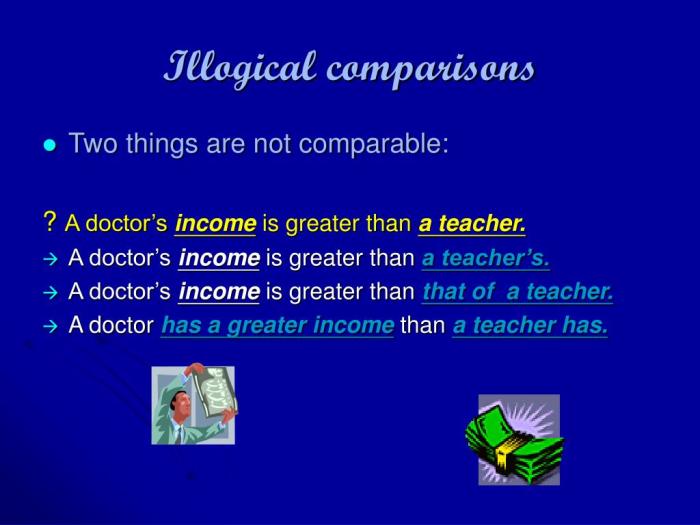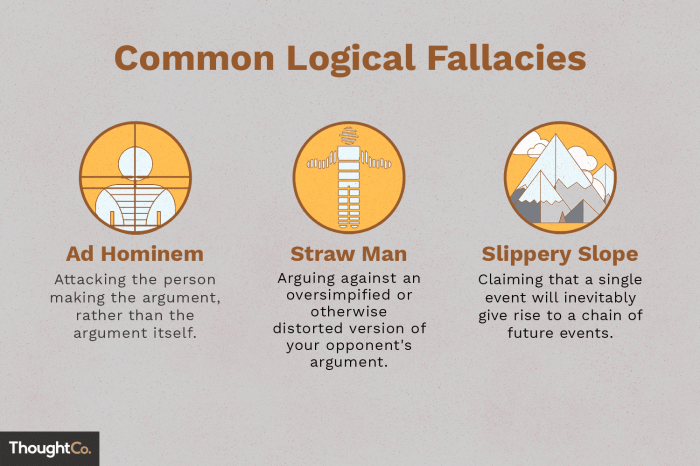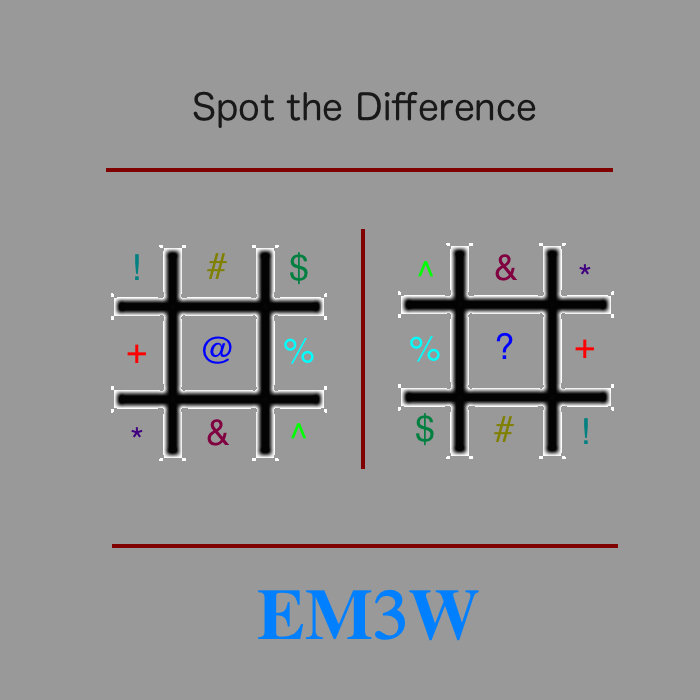Identify the one illogical comparison among the following examples. – Identifying illogical comparisons is a crucial skill for critical thinking and sound decision-making. This guide will explore the concept of logical comparisons, provide examples, and equip you with the tools to identify and analyze illogical comparisons. By understanding the pitfalls of illogical reasoning, we can avoid making incorrect conclusions and enhance our ability to make informed judgments.
Logical comparisons involve establishing meaningful relationships between two or more entities based on shared characteristics or attributes. However, not all comparisons are logical. Illogical comparisons arise when the entities being compared lack a valid or relevant basis for comparison, leading to flawed conclusions.
Logical and Illogical Comparisons

Comparisons play a crucial role in our understanding of the world. They allow us to identify similarities and differences between objects, concepts, and events. However, it is important to distinguish between logical and illogical comparisons, as the latter can lead to incorrect conclusions and flawed reasoning.
Logical Comparisons, Identify the one illogical comparison among the following examples.
Logical comparisons are those that are based on valid criteria and allow for meaningful inferences. They involve comparing entities that are similar in nature and share common characteristics. For example, comparing the speed of two cars, the size of two buildings, or the intelligence of two individuals can be considered logical comparisons.
Illogical Comparisons
Illogical comparisons, on the other hand, are those that are based on invalid criteria or compare entities that are not comparable. They can lead to misleading conclusions and hinder effective decision-making. One example of an illogical comparison is comparing the number of legs on a dog to the number of petals on a flower.
These two entities are not comparable, as they belong to different categories and have no meaningful relationship.
Implications of Illogical Comparisons
Making illogical comparisons can have significant implications. It can lead to incorrect conclusions, distorted perceptions, and flawed decisions. For instance, if a manager compares the sales performance of two employees based on the number of phone calls they make, it could lead to an inaccurate assessment of their actual performance, as the number of phone calls does not necessarily reflect the quality of sales.
Avoiding Illogical Comparisons
To avoid making illogical comparisons, it is important to carefully consider the criteria used for comparison. The entities being compared should be similar in nature and share relevant characteristics. Additionally, it is essential to be aware of the limitations of comparisons and to avoid overgeneralizing or making assumptions based on limited data.
Conclusion
Logical comparisons are essential for understanding the world around us, while illogical comparisons can lead to erroneous conclusions and flawed decision-making. By understanding the difference between logical and illogical comparisons and avoiding the latter, we can improve our reasoning abilities and make more informed judgments.
FAQ Section: Identify The One Illogical Comparison Among The Following Examples.
What are the key characteristics of an illogical comparison?
Illogical comparisons often lack a valid basis for comparison, rely on irrelevant or subjective criteria, or draw conclusions that are not supported by the evidence.
Why is it important to avoid illogical comparisons?
Illogical comparisons can lead to incorrect conclusions, undermine the credibility of arguments, and hinder effective decision-making.
What are some common examples of illogical comparisons?
Comparing apples to oranges (different categories), using a small sample size to generalize about a large population, or making subjective judgments based on personal preferences.


